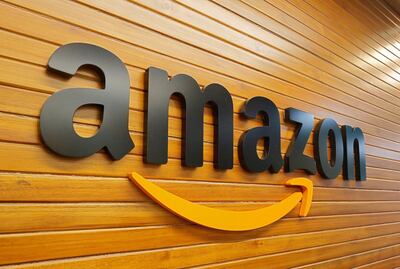Companies from Goldman Sachs Group to Havas are hoping the way to their employees’ hearts is through their stomachs as they try to lure staff back to the office.
At Goldman Sachs, free breakfast, lunch and ice-cream are part of the pitch to convince employees from London to Hong Kong and New York to leave the comfort of their homes, where some have worked since March 2020 when the Covid-19 pandemic took hold.
“Food is playing a much more central part in office life and businesses are using their food offers to try and influence behaviour,” said Robin Mills, UK and Ireland managing director at catering company Compass Group. “We are now fully part of these reopening conversations and part of this new world as companies think about how to get people to come back.”
After more than a year of empty offices and Zoom calls, pandemic restrictions are easing and businesses are trying to figure out how to manage in-office working plans. With uncertainty over whether Britain’s vaccination programme will contain the fast-spreading Delta variant, some workers do not want to return to the office at all.
chief executive, Havas London
Companies are treading a fine line, allowing flexibility while trying to fill expensive office space and reinvigorate their business culture.
Xavier Rees, chief executive of Havas London, said the media group is “demonstrably better when we are in the office” and the priority is to get people back when possible. “Not five days a week, but certainly more often than not – without robbing them of the new-found freedoms discovered in lockdown.”
Havas, a Compass client, is using food to that end, investing in its in-house kitchen, cafe and coffee shop, and allowing employees to make menu suggestions. Revamped and heavily subsidised options include healthier meals on “Wellness Wednesdays” and menus inspired by cultural events, holidays and global cuisines. It will offer free lunches on Mondays and Fridays throughout August.
“We’ve prioritised the kind of amenities that make being in an office attractive – and food is a really important part of that,” Mr Rees said. “This isn’t new – it was a huge selling point before the pandemic – but this kind of thing has become even more important as we begin to encourage people back into the office.”
Janus Henderson Group, which offered heavily subsidised three-course meals for just a few pounds at its City of London office before the pandemic, is now providing all food free. The asset management group, which has set a general guidance of spending two days a week in the office, “can’t say what our exact future working model will be, but we want to retain the best of office-based and remote working”, a spokesman said.
Workspace Group, which provides flexible office space across central and suburban London, is upgrading on-site cafes to keep a “social buzz” throughout its buildings.
“With more businesses returning to the office, our cafes are becoming increasingly important,” said Will Abbot, the company's chief customer officer.
Farther afield, Amazon.com has funded more than 100,000 cups of coffee for employees in its North American hubs, but the surge of the Delta variant prompted the online company to tell employees on Thursday that they will not have to return to the office regularly until January.
Some businesses are using food to help manage other objectives – such as equalising attendance during the five days of the week or catering to changing work patterns, according to Compass.
For example, some are beefing up food choices on Mondays and Fridays, when fewer people come in to the office. Others provide more “twilight food” options between 6pm and 9pm to accommodate those who come in fewer days a week but work longer hours when they do.
Some businesses, more cautious about encouraging a wholesale return while Covid-19 remains a threat, are introducing app ordering and “hot lockers” so food can be delivered to employees to limit social mixing in canteens.
But not everyone is thinking about food perks. Fintech Revolut, which moved to permanent flexible work, is not pushing for a wholesale return anytime soon and is repurposing its Canary Wharf office into collaboration spaces. Microsoft said some employees could potentially work from home for ever, while Adobe said coming into the office remains “entirely voluntary at this time”.

In a quarterly update last month, Compass said revenue from business and industry is only at about 60 per cent of 2019 levels given the slow pace of office returns. It expects total revenue to hit 80 per cent of 2019 levels by the end of its fiscal year, helped in part by workers making their way back to offices.
“We are finding that employers are keen to get back to work,” Mr Mills said. “We expect a positive blip in September when schools return, before a more normal return to business by the end of the year.”




